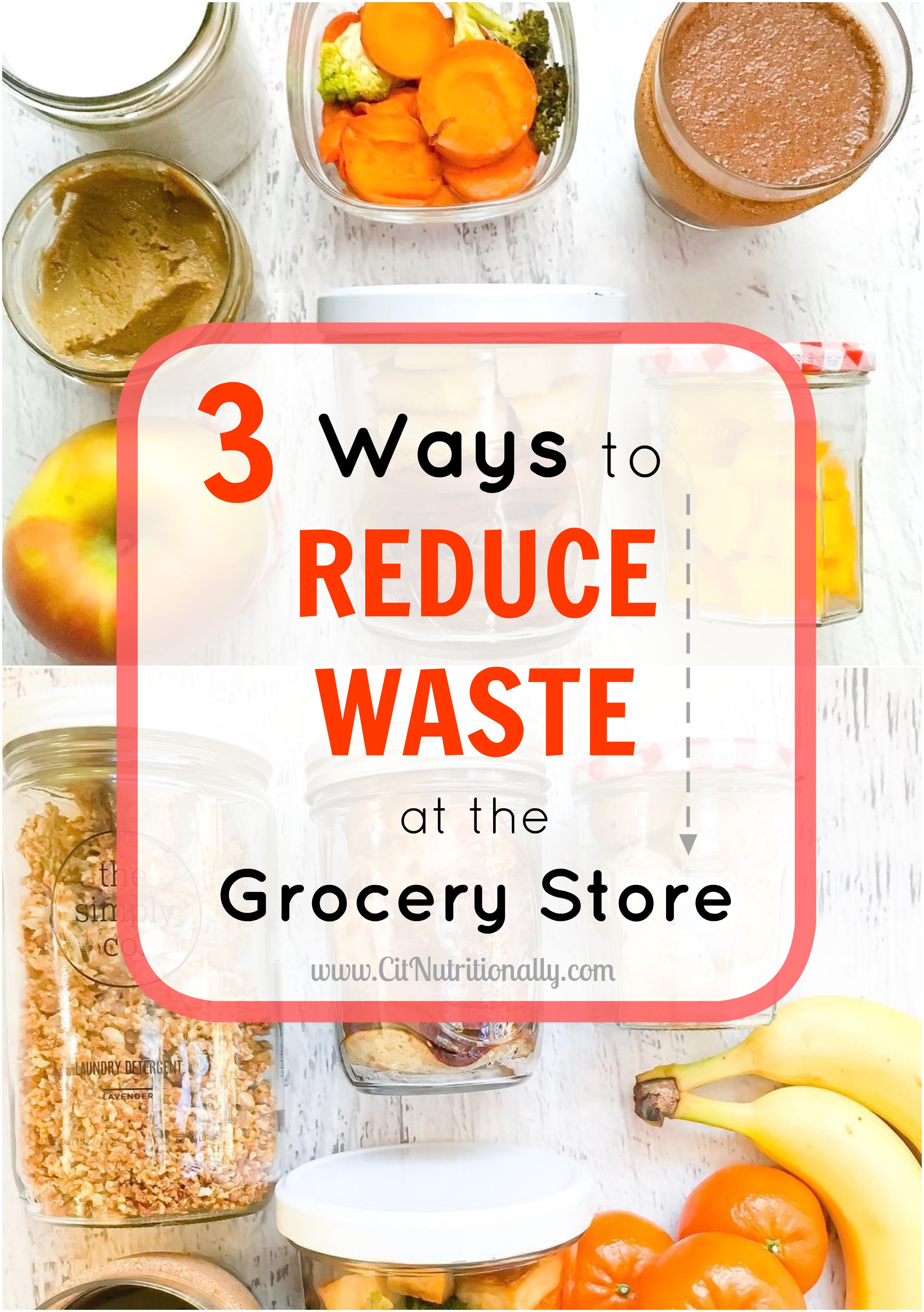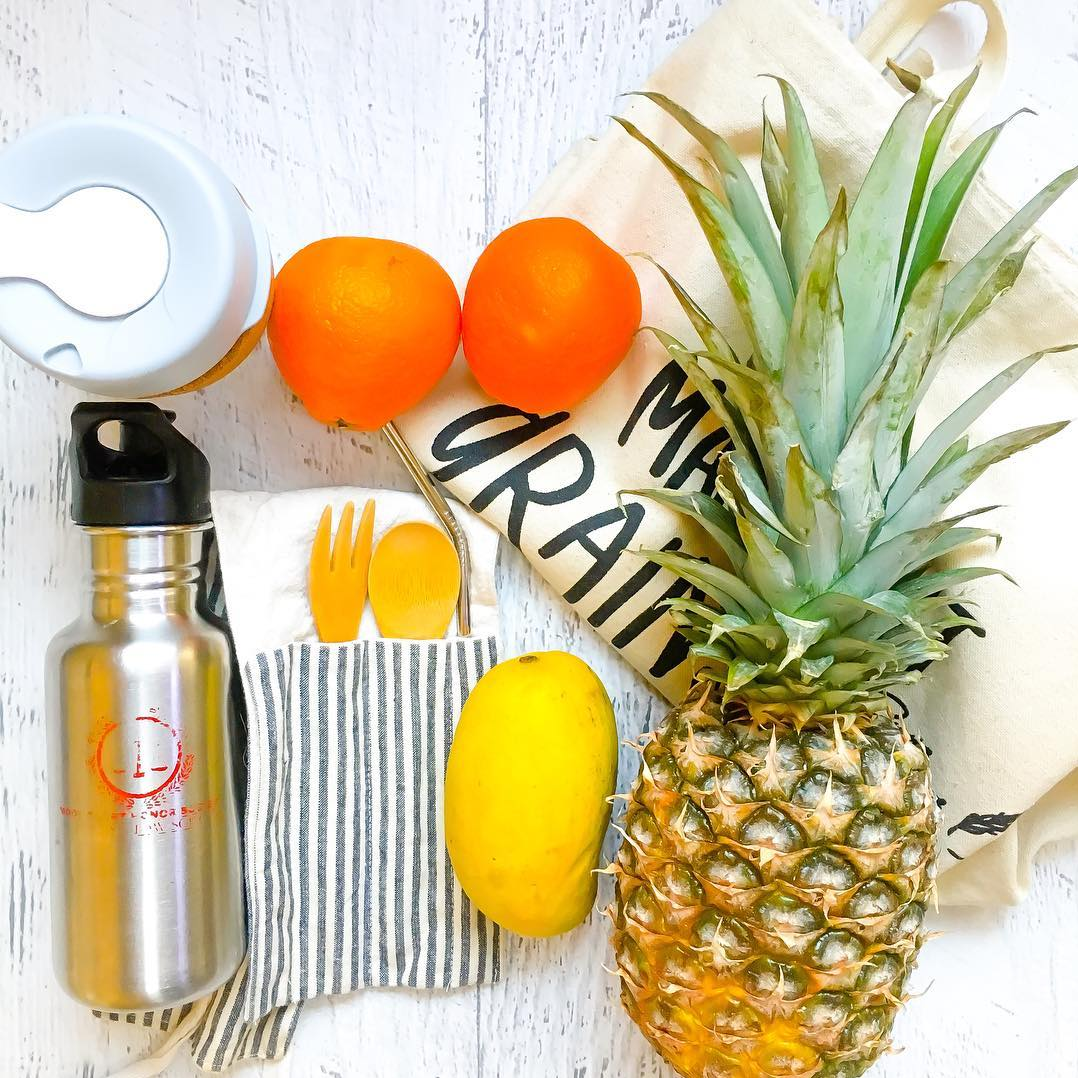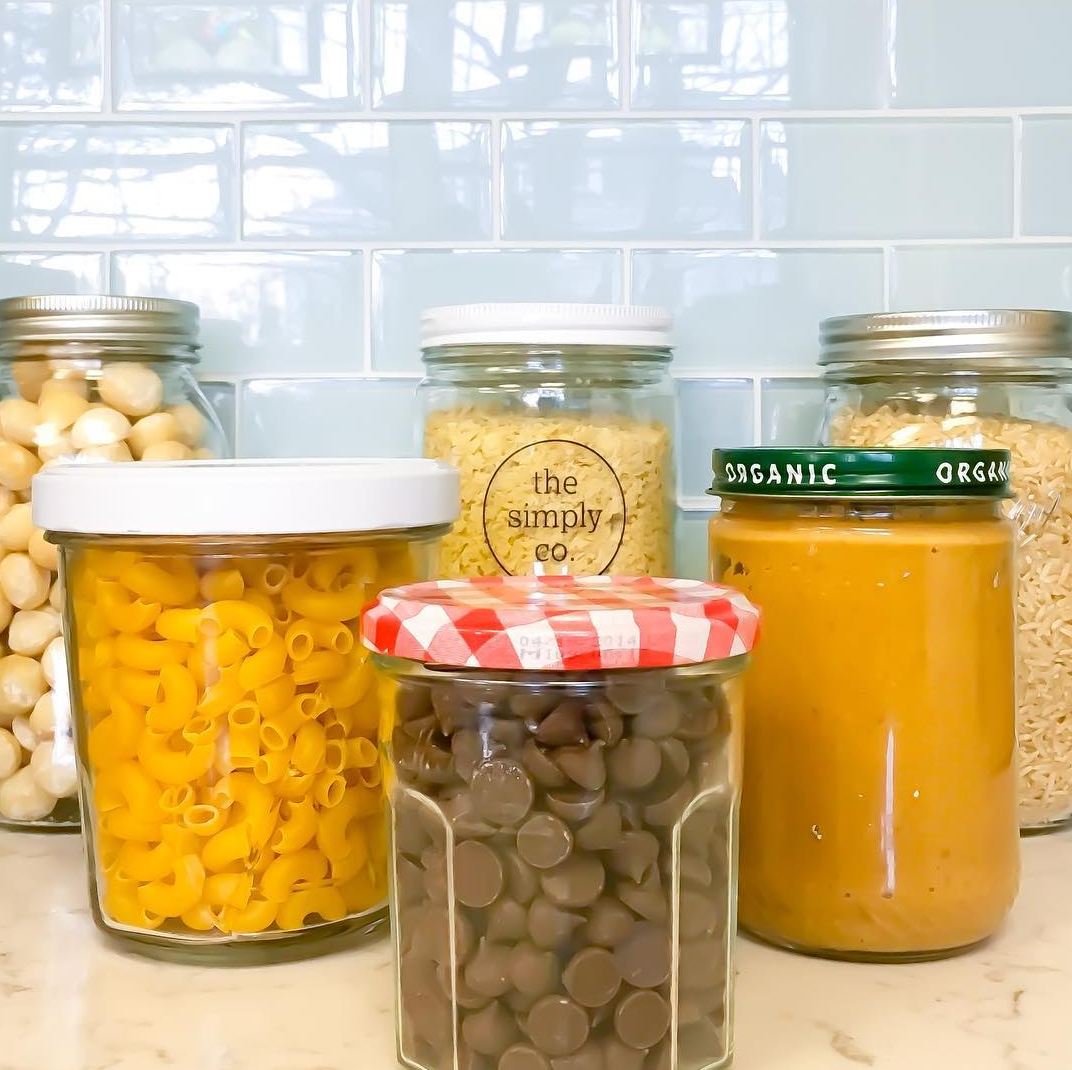3 Ways to Reduce Waste at the Grocery Store
HAPPY EARTH DAY!!!
I’m dropping in for this special occasion to introduce you to my good friend, lawyer, #RD2be, and no waste expert, Abby! You know when you meet someone and instantly CLICK?! That’s my Abby! We met less than a year ago at my dietetic internship rotation at the Natural Gourmet Institute and now Abby is finishing up her dietetic internship and slaying her Instagram game! Over on @abbysfoodcourt you’ll learn how you can healthfully make the planet a better place and reduce waste!
(note: this post contains affiliate links!)
So without further ado, here’s Abby and 3 Ways to Reduce Waste at the Grocery Store…
April 22, 2017 is Earth Day− a day committed to building a healthy, sustainable environment, addressing climate change, and protecting our planet for the future. This year’s theme is Environmental and Climate Literacy.
As a dietitian to be, I love grocery shopping. Scouring the aisles for healthful products and filling my cart with fresh vegetables gives me great pleasure. However, I recently realized the wasteful nature of my shopping habits. Many items were wrapped in plastic and for those that weren’t, I put them in plastic! Becoming conscious of unnecessary waste led me to drastically reduce the amount of waste that my family and I produce.
Today, in honor of Earth Day, I am sharing with you my 3 top tips to reduce waste at the grocery store. These tips not only help the environment, but also help you gravitate away from processed, packaged items and towards healthier foods.
Here are 3 ways to reduce waste at the grocery store…
1. BYOB- Bring Your Own Bags
One trillion single-use plastic bags are used yearly around the world and the average family uses about 60 plastic bags in just four grocery store trips. Each bag takes up to 1,000 years to degrade in a landfill and these bags cause over 100,000 marine animal deaths yearly. Need I say more?
The good news is that there’s an easy solution: tote bags! You likely already have a zillion lying around with your high school, college, or sorority logo. Every reusable bag used can eliminate an average of 1,000 plastic bags over its lifetime.
Additionally, when shopping for produce, ditch the plastic produce bags. You simply don’t need them. Many fruits and vegetables are naturally protected (i.e., bananas, oranges, avocado, etc.). Just throw these into your cart OR bring reusable produce bags.
If and when you forget your bags at home or in the car, get creative! You can carry a few items in your arms without a bag or just place everything loose into the cart and wheel the cart to your car.
So, as soon as you finish this article, collect your tote bags and put them into your car. And just say no to the single use bags!
2. BULK UP
Now that you have your own bags, it is time to acquaint yourself with the bulk section of your supermarket. Buying in bulk can help to drastically reduce your waste. Items commonly found in the bulk section are nuts, seeds, dried fruit, grains, beans, pastas, granola, and, most importantly, chocolate and coffee! I use bulk items to make nut milks and flours, oat flour, and trail mix. If I can buy an item in bulk, I rarely buy it packaged. When I found nutritional yeast in bulk at my local Whole Foods, I nearly cried of happiness!
Struggling to choose what to make first with your bulk purchases? Use bulk sunflower seeds to make Chelsey’s amazing sunflower seed butter like I did!
If you’ve never bought in bulk before, these tips will prepare for this new, sustainable and eco-friendly shopping experience:
- The first time you buy in bulk, go to the supermarket when it is not busy. This makes it easier to get used to bulk buying without a line of people behind you.
- Weigh your bag/container before filling it to ensure that you are only paying for the food you are buying. This weight is called the “tare” weight and most places with bulk sections will weigh your containers at the customer service desk.
- Fill your bag/container with the item and take a picture of the number on the bulk bin. I skip using the scale provided to avoid using a sticker. Cashiers will tare the container, weigh the food, and charge you.
- Note: Those with food allergies must be careful with bulk products. Speak to the supermarkets about the potential for cross contamination.
3. SPEAK UP
You, the consumer, have an important and influential voice. Use it! I started emailing companies that make my favorite food and speaking to supermarket managers. I want to know about them, their practices and whether they share my commitment to sustainability. I understand that ecofriendly packaging and sustainable practices can be more expensive, but those challenges have not prevented creative companies from taking steps in the right direction. Those are the companies that I support.
By speaking up, I make companies aware that I will buy ten times more of their products if I agree with their practices and I will not buy their products if I don’t agree. I tell supermarket managers that I love their bulk sections and want to see greater variety. Our collective voice can help drive companies toward sustainability!
***
Thank you Abby!!! How fantastic are these tips?
Which sustainable grocery shopping practice are you going to put into effect at your next supermarket shop? Let me know if the comments below!
Happy Earth Day!
XO
Let’s get social!
Facebook: C it Nutritionally
Twitter: @ChelseyAmerRD
Instagram: @CitNutritionally
Pinterest: ChelseyAmer






 Hi there!
Thanks for stopping by! I'm Chelsey, an online Registered Dietitian, recipe developer, budding photographer, and coffee addict! My mission is to help you feel good through food by answering the question "What should I eat?" Let's make nutrition approachable!
I hope you enjoy my personal collection of simple, healthy, food allergy friendly and nutritiously delicious recipes, plus tips and tons of tricks that will help YOU live a nutritionally-balanced life! I look forward to getting to know you better...
Hi there!
Thanks for stopping by! I'm Chelsey, an online Registered Dietitian, recipe developer, budding photographer, and coffee addict! My mission is to help you feel good through food by answering the question "What should I eat?" Let's make nutrition approachable!
I hope you enjoy my personal collection of simple, healthy, food allergy friendly and nutritiously delicious recipes, plus tips and tons of tricks that will help YOU live a nutritionally-balanced life! I look forward to getting to know you better...








Hi Abby! Great post and I love these tips! California actually just passed a law that you will be charged if you don’t bring your own bags so I am all about this and reducing waste!